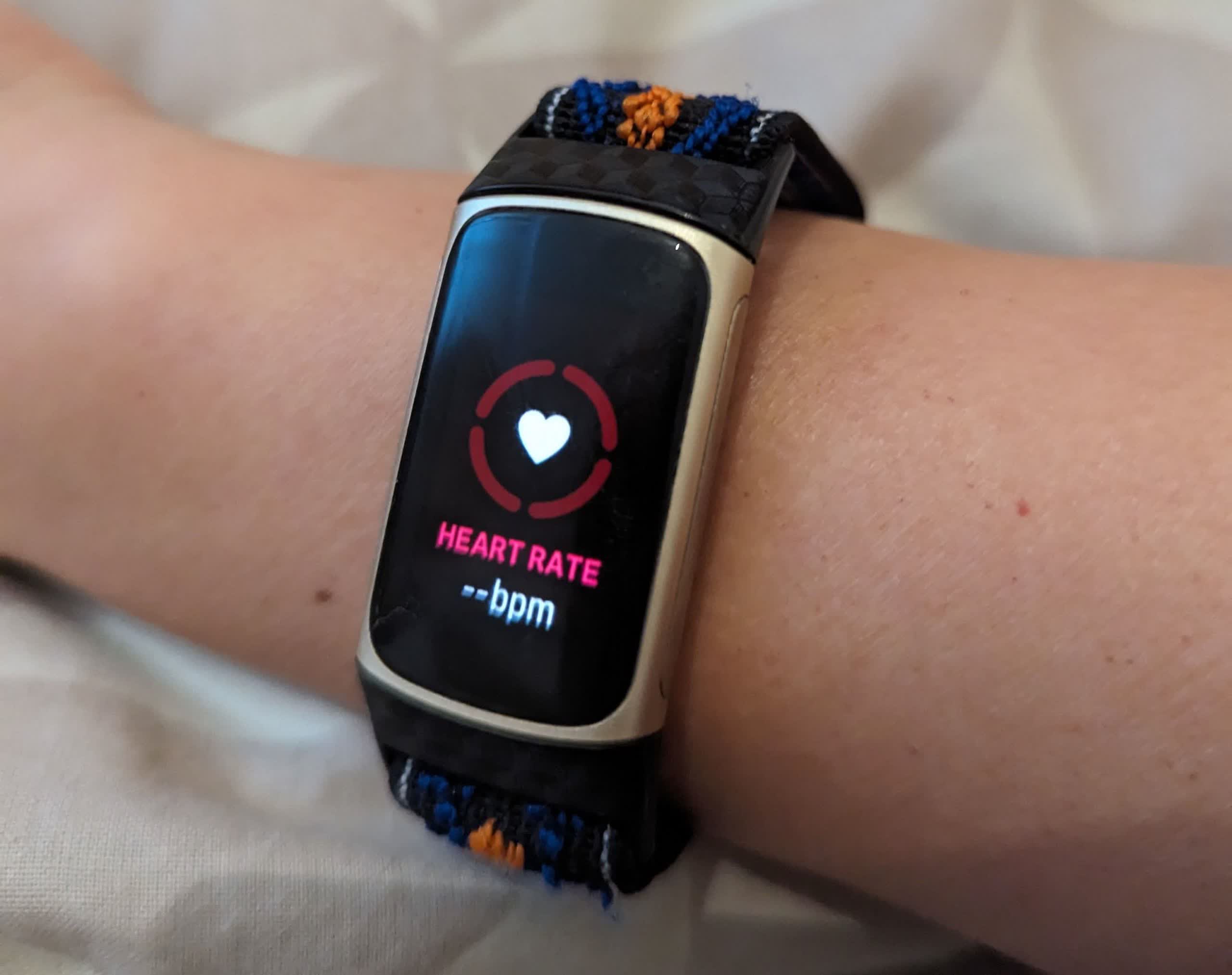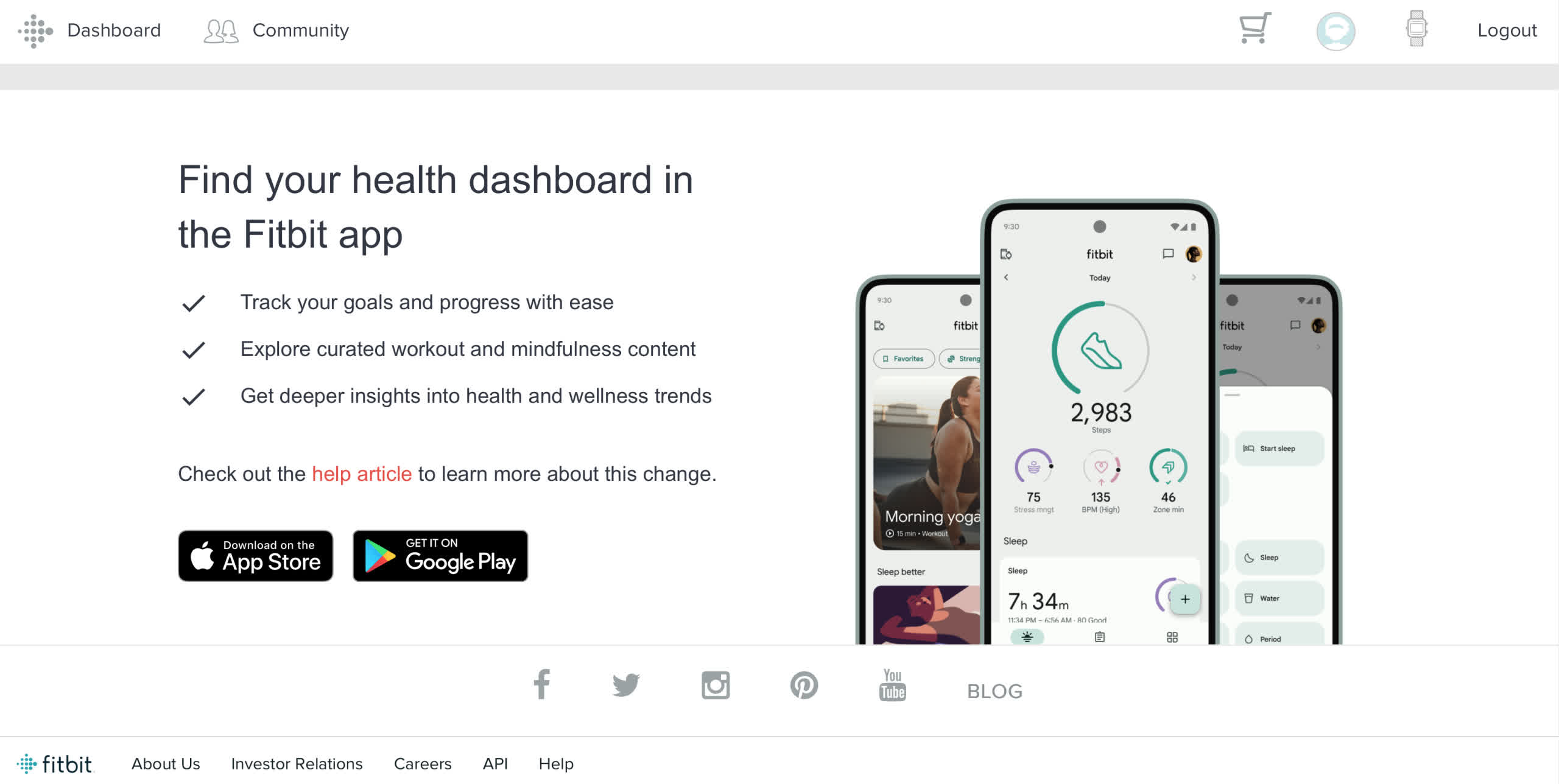Editor’s take: When Google was a lowly upstart, its motto was “Don’t be evil.” It even listed the phrase prominently in its corporate code of conduct. After the Alphabet restructuring in 2015, it was changed to the tamer-sounding “Do the right thing.” It’s telling that by 2018, Google no longer had a motto and had removed both phrases from the company CoC. It makes sense, considering the company no longer lives by either creed.
As of 10 days ago, Fitbit users no longer have a web dashboard to track their fitness goals. The website is now an advertisement for the Fitbit mobile app for iOS and Android. The discontinuance was not sudden or unexpected. Fitbit announced in June that the utility was going away, but users still aren’t happy about it.
One problem users are fussing about is that they can no longer track their fitness goals on a nice full-screen dashboard on their computer. Instead, they are relegated to a relatively tiny phone screen that can’t display multiple metrics simultaneously as the web dashboard did.
“It’s particularly awful for anyone with a visual disability or a finger dexterity issue,” said one frustrated user in the Fitbit forums. “It’s still bad for everyone else because you just can’t see as much on a 3-inch screen as you can see on a real computer … Bring back the web interface!!”
Furthermore, the app is missing some of the features that the web interface had, such as food logging.
Fitbit tried upselling the change by promising that users wouldn’t lose their data during the transition (aside from food logging, I suppose). However, that was little consolation for users who preferred the more extensive web interface. It also didn’t help that the Fitbit representative came across as a loyal Google subsidiary (read: lapdog) instead of being there for the customer.
“Combined with Google’s decades of being the best at making sense of data, it’s our mission to be one combined Fitbit and Google team,” the Fitbit spokesperson continued in the forum. “Consolidating the Fitbit.com dashboard into the Fitbit app is a part of that mission, and will allow us to focus on features that provide even more valuable insights to our users.”
Google’s Fitbit acquisition in 2021 was contentious right out of the gate. Users, privacy watchdogs, and domestic and international regulators had concerns that the buy was an attempt to increase Alphabet’s advertising revenues by collecting and selling users’ health data.
Google quelled these fears with promises not to conduct such information harvesting, and eventually, regulators approved the deal. This promise turned out to be a lie, as evidenced by the fact that users signing up to a Fitbit account still have to agree to Google services’ umbrella policy, which includes sharing your “anonymized” health data with advertisers. Fitbit account setup says:
“I consent to Google using my health and wellness data to provide Fitbit products and services, based on my Fitbit setup, and in the ways described above [privacy policies]. I understand that I can stop using Fitbit at any time, and delete data in my Google Account.”
Since then, Alphabet’s handling of the company and its primary product–the Fitbit wearable–has shifted from a device-focused philosophy to an app-centric one. Google has repeatedly reduced hardware features, including the ability to sync with computers, and has primarily pushed customers to use the app, which defeats the point of the device.
With the AI gold rush in full swing, Google has big plans for the device and the app. Soon, Fitbit subscribers will have experimental AI features on the watch that they didn’t ask for, and all users will get a custom-designed LLM integrated into the app. As we have seen with the recent AI-powered Search Overviews, Google will likely enable these features by default with a difficult to non-existent way to opt-out.
Of course, none of this is new. Google has been mismanaging the Fitbit brand in users’ eyes since its takeover. It has almost entirely ignored customer feedback at every juncture, and the few times it has had something to say about an issue, it has been to deny the problem exists.
For example, Ars Technica points out that when Fitbit Charge 5 users complained about incredibly rapid battery drain after a firmware update, Google claimed it was looking into the issue while adding that it knew for sure that it wasn’t an issue with the firmware. It made that declaration in January, and the bug still hasn’t been fixed despite PC World criticizing Fitbit devices, saying they are “a one-year purchase in the US.”



